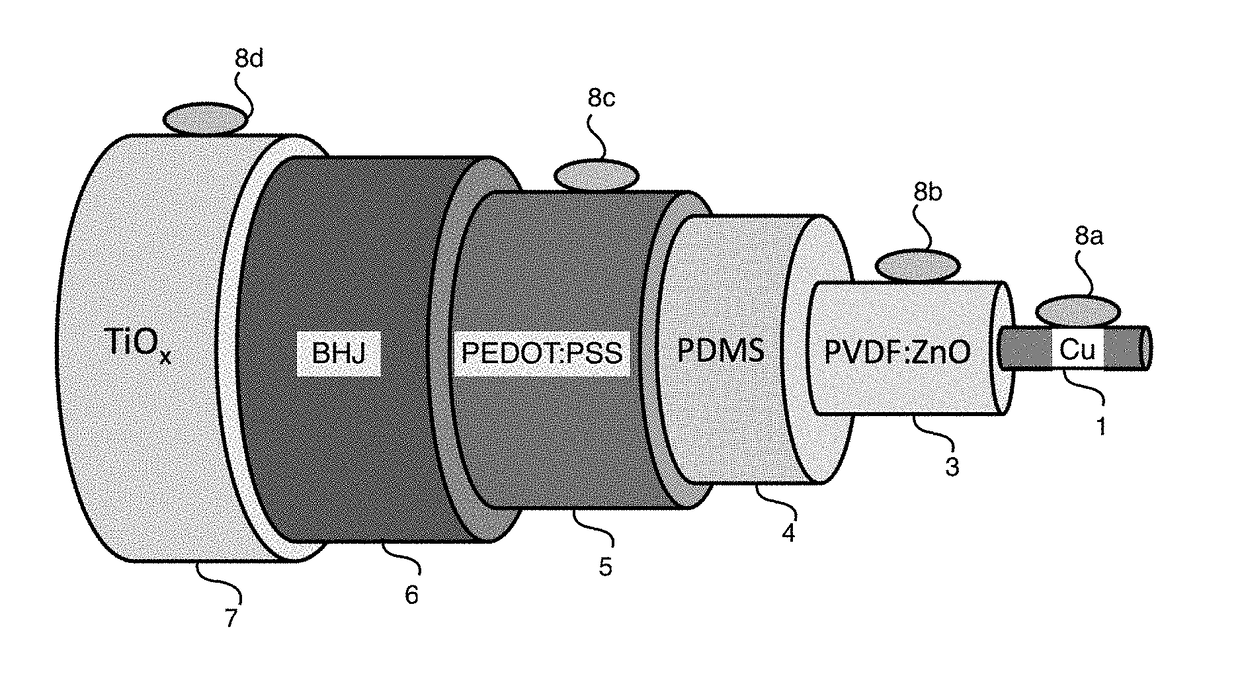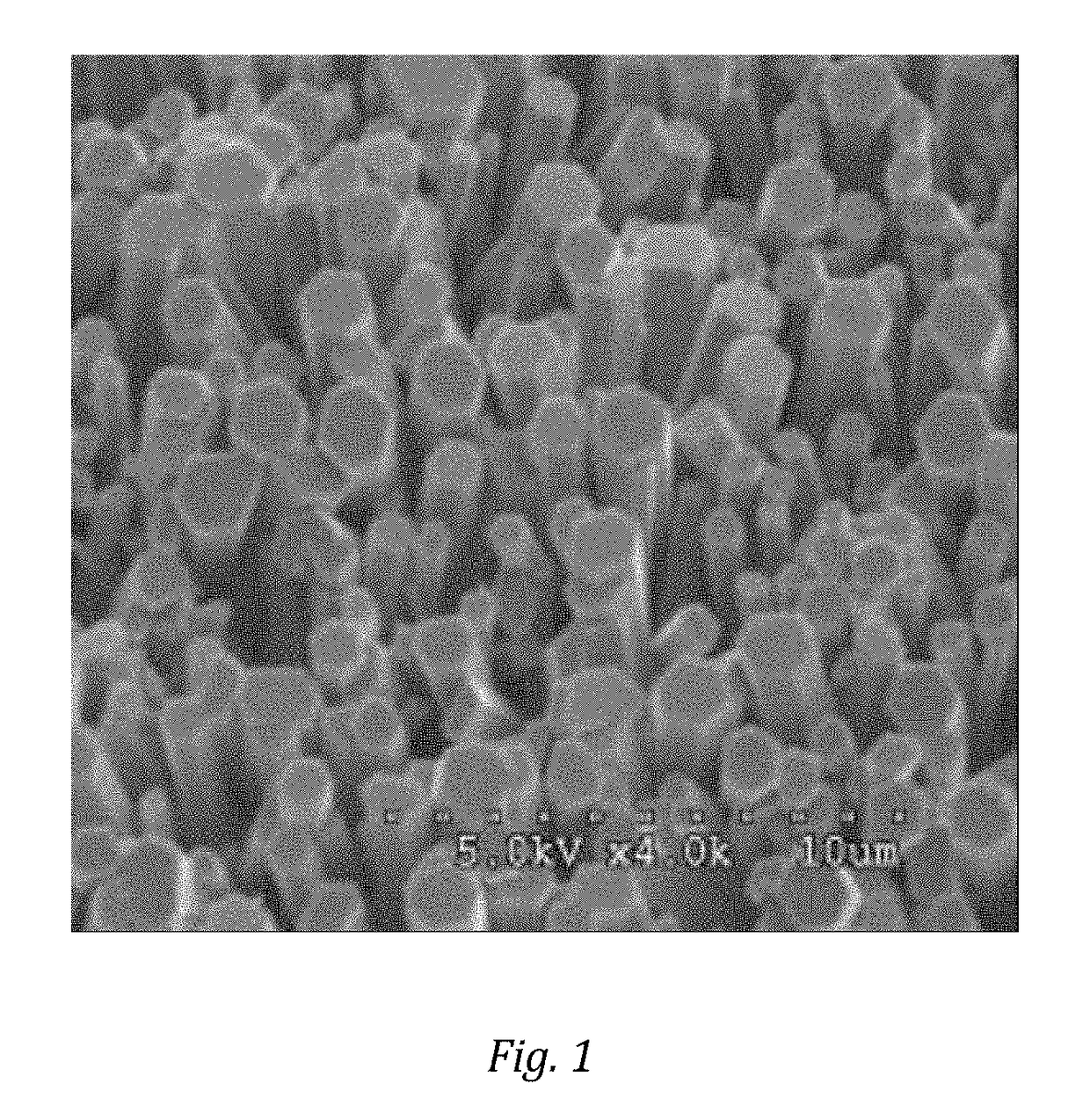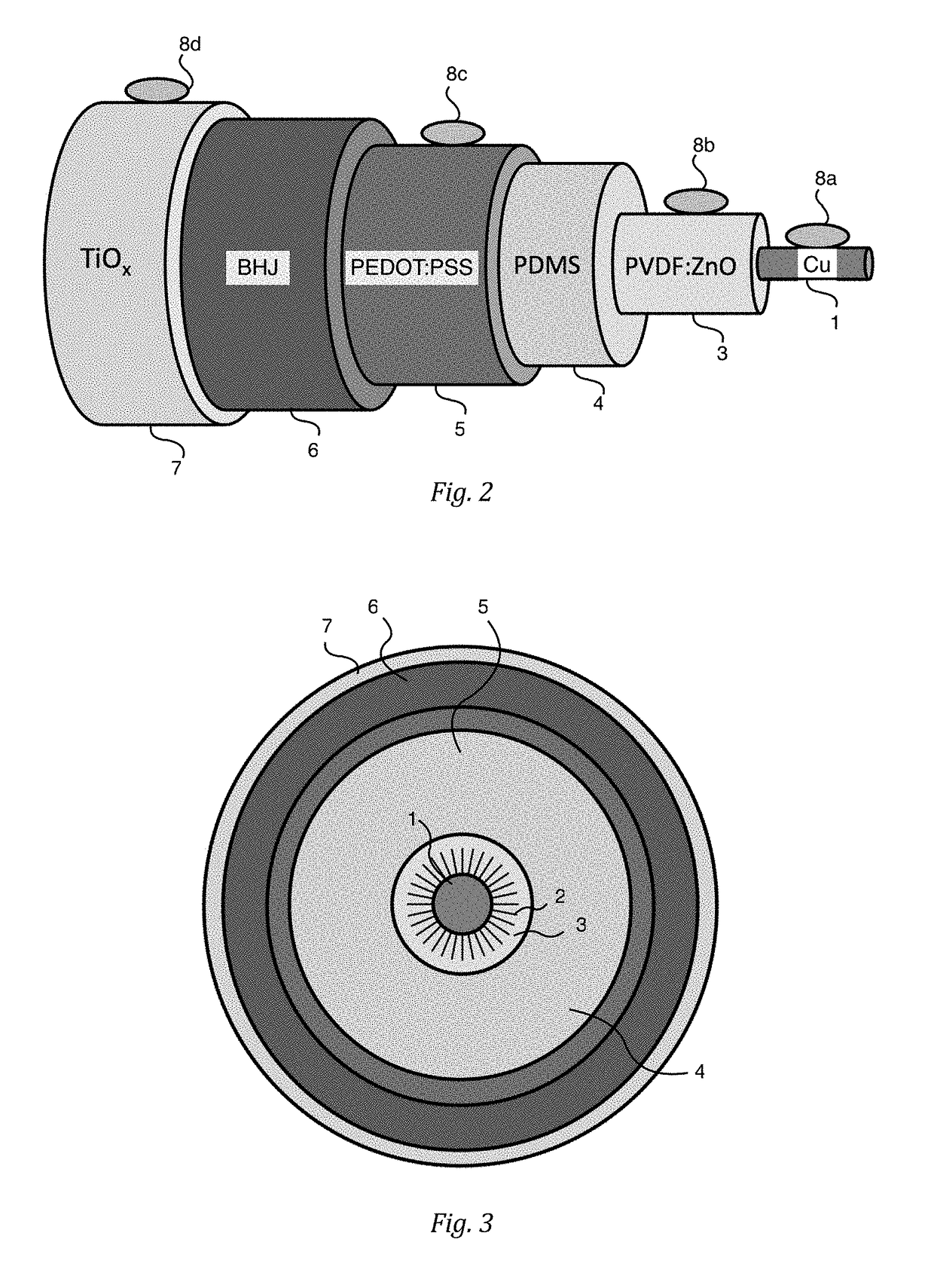Hybrid photovoltaic and piezoelectric fiber
a piezoelectric fiber and photovoltaic technology, applied in the direction of pv power plants, generators/motors, device material selection, etc., can solve the problems of limited rigid structure, rare durability or efficiency of flexible solar cell devices, etc., to improve the dual photovoltaic and piezoelectric energy harvesting capabilities, the effect of long operational lifetime and good flexibility
- Summary
- Abstract
- Description
- Claims
- Application Information
AI Technical Summary
Benefits of technology
Problems solved by technology
Method used
Image
Examples
examples
[0053]1. PNG Devices
[0054](a) Materials
[0055]Chemicals were commercially available, reagent or electronic grade materials. Deionized water was used throughout. Copper filament for device cores was AWG 37 gauge (ca. 0.1 mm), pulled from 15-strand wire and used without surface preparation.
[0056](b) PNG Device Fabrication
[0057]Fiber-type PNGs (M. Lee et al., Adv. Materials (2012) 24:1-6) were fabricated on thin copper core filaments provided with a deposited zinc oxide seed layer, on which the aqueous chemical (hydrothermal) growth of zinc oxide nanowires was carried out. (A. Sugunan et al., J. Sol-Gel Sci. Techn. (2006), 39:49-56.) The zinc oxide seed layer solution was prepared by dissolving zinc acetate dihydrate in anhydrous ethanol at a concentration of 5 mM, stirring for 30 minutes until a clear solution was obtained. Copper filaments were dip-coated in the zinc oxide seed layer solution (5 times) and annealed at 250° C. for 20 minutes; this process was then repeated a second tim...
PUM
 Login to View More
Login to View More Abstract
Description
Claims
Application Information
 Login to View More
Login to View More - R&D
- Intellectual Property
- Life Sciences
- Materials
- Tech Scout
- Unparalleled Data Quality
- Higher Quality Content
- 60% Fewer Hallucinations
Browse by: Latest US Patents, China's latest patents, Technical Efficacy Thesaurus, Application Domain, Technology Topic, Popular Technical Reports.
© 2025 PatSnap. All rights reserved.Legal|Privacy policy|Modern Slavery Act Transparency Statement|Sitemap|About US| Contact US: help@patsnap.com



